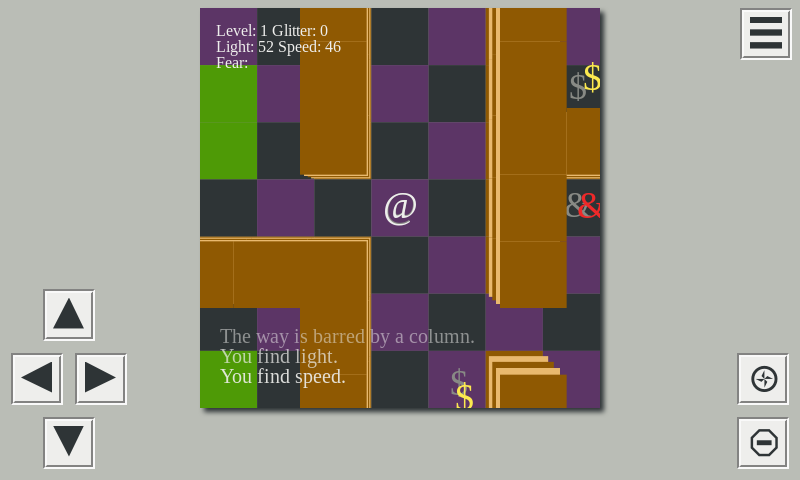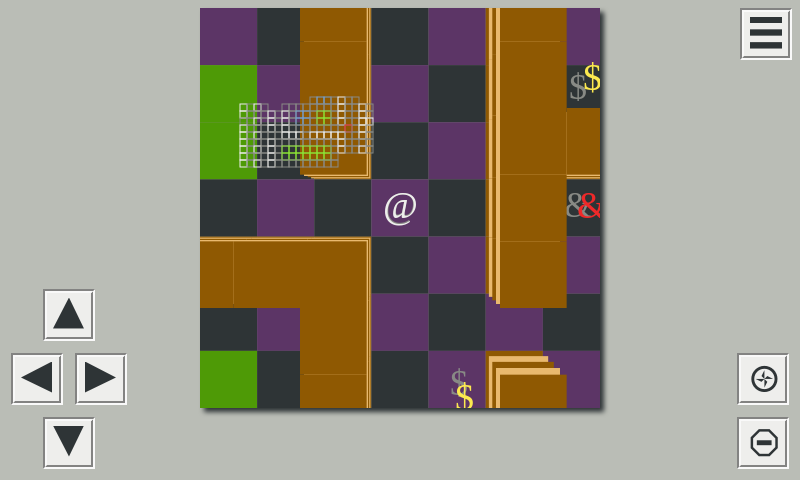Weekly Links #102
Sometimes experiments just don't pan out the way we expect them to.
But you know, that's kind of the point. And sometimes the actual
results are more interesting than those we were expecting.
I was going to write the article promised in the previous newsletter,
but instead I found myself adapting the new mobile UI from the Deep
Down prototype to an older game of mine: Glittering Light. Here's the
result after a few days:


So much for doing everything on a dumb drawing surface. Why should I
reinvent the GUI wheel when the browser gives it to me for free? Just
so it would be more like in other environments? Well, it's not. It's
a browser game, might as well embrace that. It allows me to inline
the credits and proper instructions, have a high score table, and as
a bonus the buttons actually work in mobile browsers as well (unlike
touch events, which should but don't). Getting mouse events relative
to the viewport was a bit of a problem, but now I can use a secret
weapon: jQuery. As for that infamous delay when touchscreens simulate
a click event, there's a reason this game is entirely turn-based...
Experiment "write games using a standard GUI toolkit" is a success.
Next, to embrace the paradigm more fully.
In completely unrelated news, my friend Sera alerts me to the fact
that The Oculus Rift will cost nearly double the promised
amount, and that's on top of the already expensive gaming rig it needs
to be at all useful. Dear Silicon Valley hipsters: some players make
sacrifices to indulge in their hobby (and make you rich). Show a
little respect. Oh, and you might want to look at a little competitor
called Google Cardboard, which only costs a few dollars (by virtue of
being make of literal cardboard), works with common smartphone models,
and -- check this out -- is an open design, so buyers aren't tied to
a single manufacturer that might discontinue the product line or even
go out of business at any time.
Sure, Cardboard is probably a toy in comparison. But it also has room
to improve in leaps and bounds, with minimal investments that will be
distributed across countless enthusiasts the world over. Good luck
keeping pace.
Until next time, beware of overengineering.